Most families eventually have to deal with a complicated and heart-wrenching question: How do I know when an aging relative needs more help than the family can provide? On the one hand, there are numerous 90-year-olds living completely independent lives; on the other hand, there are lots of people in their 70s and even 60s who find they need more help ifrom day to day.
This decision causes families grief. No adult son or daughter wants to admit that a parent — who provided life, nurturing and help to the child for so many years — is now in need of care that simply can’t be provided in return.
Does it make sense to drive back and forth between homes several times daily to make sure your loved one is eating enough, when a care facility would be able to feed him or her on time, every time, every day? Can you afford to take time off your job to provide the level of care that is needed? How much time, given that the situation likely won’t improve? Are you even able to provide the skilled level of care that is required?
Maybe your loved one is still mostly independent, but is showing worrying signs such as forgetfulness or confusion. Are there care options available for those who don’t need constant attention?
We’ll answer these questions throughout this article — and learn five signs that your loved one may need the services provided by an assisted-living facility or nursing home
Often, the homes we live in when we are in our 60s and 70s are no longer safe when we reach our 80s or 90s. Stairways, serpentine hallways, slippery tile and tall shelving units present potentially dangerous obstacles that must be negotiated daily. Also, large yards with uneven terrain, poorly lit rooms or small bathrooms in the home of an aging loved one may give family members good reason for pause.
When older family members are still too independent for full-time nursing-home care, many need a much lesser degree of help with daily tasks. These tasks include bathing, cooking, eating, changing clothes and getting safely into and out of the bathtub. For these people, assisted living may be the answer. Assisted living facilities fill a gap between complete independence and around-the-clock care. It’s an option for those who are “mostly abled” and who still want (and can safely live with) a high degree of freedom and independence.
A person still in their 30s or 40s may begin showing early symptoms of Alzheimer’s, though it more commonly presents itself in those who are retirement age or older. In the early stages, a person has difficulty processing information, remembering simple items or tasks, and concentrating. While these people can still care for themselves most of the time, that independence will continue to shrink as the months and years pass. Even in the early stages, a momentary absence of thought can be disastrous while driving, working around the house or taking daily medications.
About 10 million people in the United States are providing their own home care to loved ones with Alzheimer’s [source: Alzheimer’s Association]. However, the challenges of caring for an Alzheimer’s patient at home only multiply, so just when you think you can sufficiently help a loved one handle a certain level of disability, his or her needs increase. Professionals in care facilities are often equipped and trained to help residents with Alzheimer’s. As soon as a loved one is diagnosed with Alzheimer’s disease, family members need to begin discussing options for long-term care.
Many diseases, like Parkinson’s disease or kidney failure, are widespread in elderly populations and require around-the-clock care that friends and family simply can’t provide. The slow advance of these conditions may make it difficult for the affected family member to accept that living without around-the-clock assistance isn’t feasible, even when it’s fairly clear to others familiar with the situation.
Advanced diabetes often affects eyesight, making the performance of daily tasks downright dangerous. Loss of vision also creates enormous risks of mishandling prescription medications. Conditions such as severe or recurring strokes necessitate an environment in which a person can not only be carefully treated for pre-existing or recent bouts of disease, but also given intense preventive care.
When it seems like a relative is spending as much time at a medical facility as he or she is at home, advanced care options need to be explored. The risk of accidents, infections or disease-related episodes can be vastly diminished by making sure a loved one will have the level of professional care that is needed.
As we age, our reward for long life is often physical decline, new and unexpected sources of pain, and recognizing far too many names when reading newspaper obituaries. The new difficulties of daily life, from incontinence to needing help changing clothes, can also be frustrating.
All of this often adds up to a saturating sense of depression. Not only does depression affect a person’s perspective, it also adversely affects the immune system, making a depressed person that much more susceptible to further physical ailments. Also, depressed seniors may withdraw into a cocoon of isolation, making it next to impossible for others to reach out to them or just lend an ear.
Nobody should be left in this type of environment. If you notice signs that an older family member is no longer able (or seemingly interested) in living with a basic amount of dignity, socialization and contentment, that person may very well benefit from the care, attention and understanding that can be provided by care facilities.
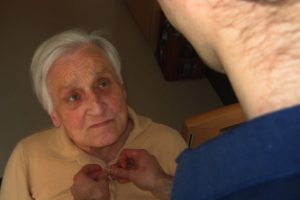 Families all over the world are juggling children, jobs and aging parents in an effort to “take care of their own.” There can come a point, though, when the demands created by caring for an aging parent outweigh the logistical, financial or emotional resources available.
Families all over the world are juggling children, jobs and aging parents in an effort to “take care of their own.” There can come a point, though, when the demands created by caring for an aging parent outweigh the logistical, financial or emotional resources available.It’s not uncommon for people to feel they’re abandoning a family member or “getting rid” of the problem. Sometimes, these feelings are exacerbated by an older person’s shared belief that he or she is being put out of sight and out of mind.
The reality is that a point may come in an elder’s care needs when professionals can provide a much safer and healthier environment than a family can. Family members must take leave from jobs, drive great distances daily to help out, and take on the costs of the elder’s mortgage, utilities and other bills. Then, there’s the cost of home-care nurses, trips to the hospital, ambulance rides and other health-related expenses. Also, when a relative cares for an elder who has sizable needs, not only is the care usually less than that provided by a professional, but the relative has traded one full-time paying job for one full-time non-paying job.
The burden of providing care without outside help can deplete your family’s resources and emotion well-being. Before this becomes the case, you should explore the option of placing a disabled relative in a long-term care facility.
Reprinted with permission: Tom Scheve “5 Signs an Elderly Person Shouldn’t Be Living Alone” 25 March 2009.
HowStuffWorks.com. <http://health.howstuffworks.com/wellness/aging/elder-care/5-signs-elderly-living-alone.htm> 3 June 2016

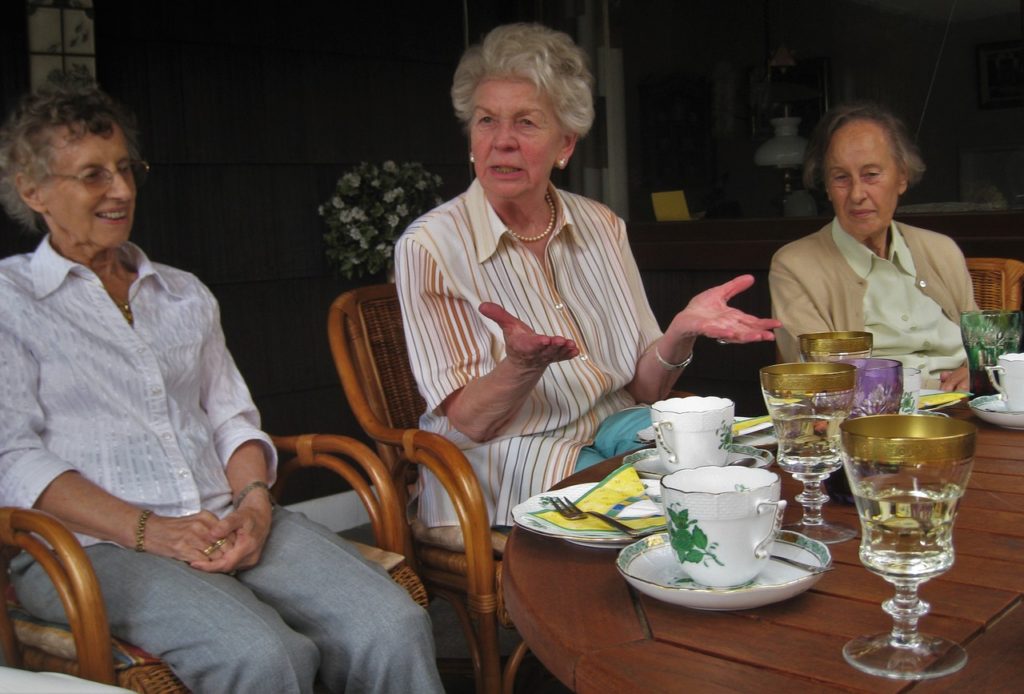
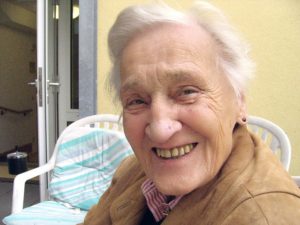

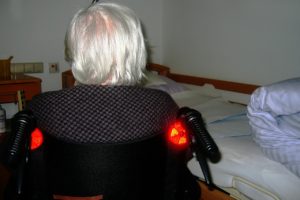
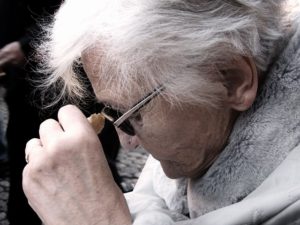



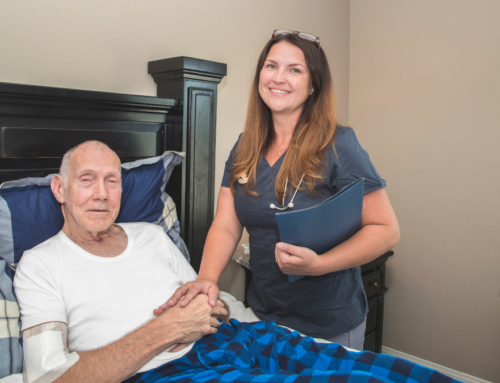

“An impressive share! I have just forwarded this onto a coworker who had been doing a little
homework on this. And he actually ordered me dinner simply because
I found it for him… lol. So allow me to reword this….
Thank YOU for the meal!! But yeah, thanks for spending some time to discuss
this topic here on your blog.”
I have been absent for some time, but now I remember why I used to love this site. Thank you, I¡¦ll try and check back more often. How frequently you update your website?
“fantastic post, very informative. I wonder why the other experts of this sector do not notice
this. You should proceed your writing. I am confident, you’ve a huge readers’ base already!”
I appreciate that you explained how early Dementia can be hard for someone living alone. My grandpa is showing signs of Dementia and my family is debating on when to put him in a nursing home. I’ll have to keep researching and find a good nursing home that can accommodate his needs.
Thank you so much for the information shared in this reading regarding Dementia, Parkinson and Alzheimer. I am the care giver and POA for my sister who has been diagnosed with Dementia and has demonstrated all of the definitions above. Although she has a living daughter, who is the head of her household, I found myself having the overwhelming responsibility to step in to give the care and for the best welfare of my sister. Honestly, in my opinion, had it not been for me, it is concerning what would have happened to my sister as she was barely hanging on to her survival trying to live independently. With the care I provided and the support systems I created with the church members, Aging Commission, health insurance providers (Physical Therapy, Occupational Therapy)and friends, she survived at home, until it became too overwhelming for her and the in-home support team I coordinated for a year.
I have long struggled with the issue, while taking control, thinking maybe I should have walked away. Through my struggles and assistance, I frequently evaluated the process and currently, my sister is in an assisted living facility that I feel is a very safe place in her life..
After, reading your information, I am positive I made the best decision for my sister and her well being at this time. I am writing this message to THANK YOU so much for the reading and my appreciation of your message regarding the elderly.
Respectfully.
My dad is now 85, has advanced dementia and will not discuss Healthcare, money or assisted living arrangements. The medical profession and the law put far too much a burden and unnecessary heartache and stress on family members. Its unconscionable that I have to go to court to gain guardianship, wait for a court date to appear, in opposition, only for him to tell the judge he’s fine. Doctors should decide when someone is unable to live on their own, I’m not a medical professional nor should I have to take my dad to court. Tomorrow I will drive 8 1/2 hours to once again fix his phone, tv and clean the nastiest of the nasty then return home, the same day, so I can be on time for my job the following day. I’ve been doing this steady for 5 years now. No doctor will see him anymore because he doesn’t follow their advice and he’s had four wrecks in the last 3 years. I’m glad I don’t have children but if I did I would make certain that I made arrangements for myself rather then this BS. My dad, he’s happy as a lark, he doesn’t have to clean up the mess in his wake.